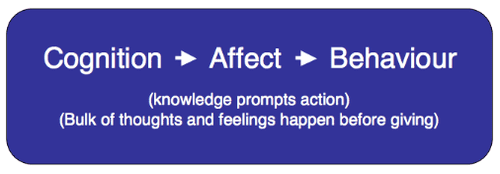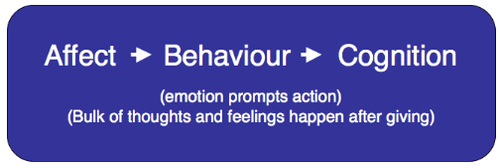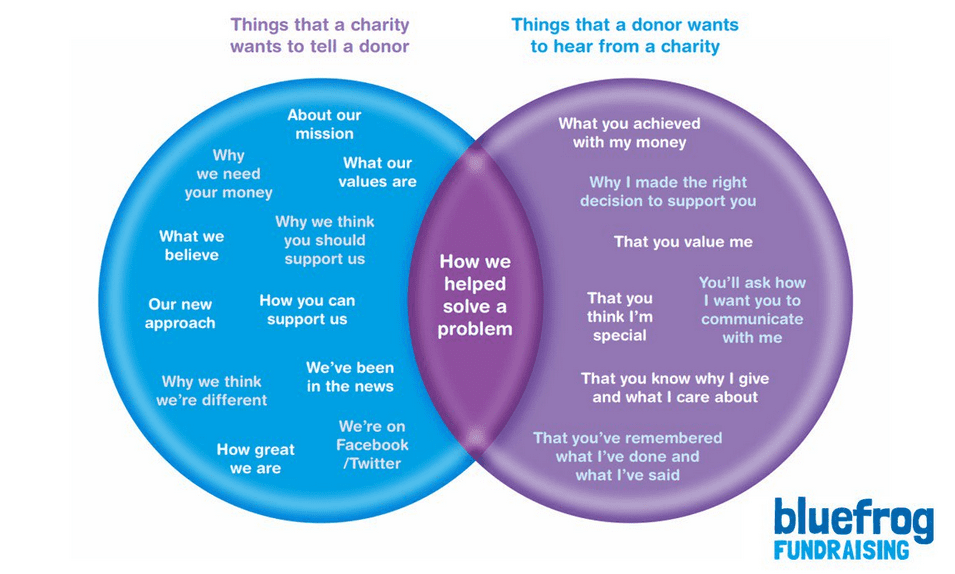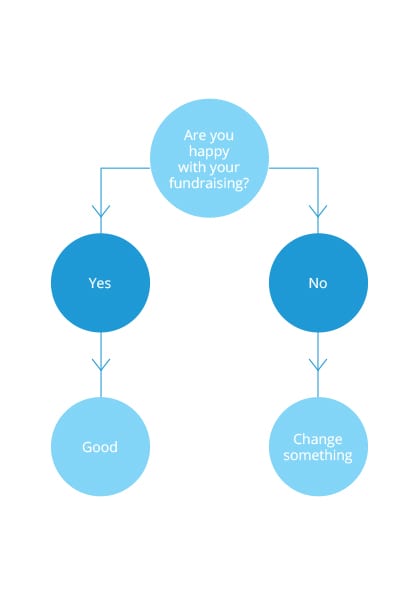Forget toxic assets. It's toxic donors that we need to worry about
How can some donors be toxic? Aren't they all the same?
Sadly, the answer is no.
Just look at attrition rates of regular givers. Some of the most recently adopted recruitment techniques have very high levels of attrition – face to face, TV and telephone recruited questionnaire donors can all demonstrate a toe-curling number of cancellations.
Whereas donors recruited by routes such as press (and increasingly a number of online routes) can be very loyal.
If we look at how people make the decision to give, it is easy to see why.
Traditionally, a giving decision depends on knowledge prompting action – the bulk of thoughts and feelings happen before we put our hands in our pocket.
I've had direct experience of what happens when we removing this thinking time from the giving process...
Years ago I worked at a charity where press was the main form of recruitment. The organisation had a very long running press campaign that was stopped for a period of about six months. When the ads started running again they didn't work – and I'm talking about proven ads in proven titles.
There was little alternative to keep running the ads as many had been booked well in advance.
And what happened was that the ads – over time – started working again.
The ads had a slow burn impact on the readers. They saw the need, thought about it, took in information from third party sources and (after what was a surprisingly specific number of opportunities to see) finally made the decision to give. As a result, they were very loyal.
The newer acquisition routes, however, compress the time for consideration into a few minutes. This means that emotion is the primary driver of action and the thinking time happens after giving.
If we choose to use techniques that compress thinking time to fit the length of a TV ad or a conversation on a street corner we need to take into account the psychological position that we place the person who is giving.
After signing up, they are wondering if they have done the right thing. They don't know if their money or they will be appreciated.
As a result, we can't simply drop them into standard donor communication programme. These aren't designed to engage people struggling with a level of doubt.
If we do, we are largely dependent on what Professor Adrian Sargeant describes as passive commitment – a term that refers to the disempowering fact that we are left simply hoping that donors can't be bothered to cancel.
Unfortunately many can be bothered – particularly at times of financial stress – and we are left with growing attrition rates as a direct result.
So what do we do?
Doing nothing isn't an option. Attrition rates are already too high.
One route is to enter into PI deals with media owners or demand ever larger guarantees from the face to face companies.
The success of this strategy depends on increasing the chance of finding those people who are happy to passively commit. But with tightening belts, this number is dwindling.
We need to recognise that there are a large number of people who will give if we start putting some effort into the relationship. We must actively take their needs into account – otherwise they are simply going to continue to ignore our communications until we get fed up and leave them alone.
In doing so they'll become toxic, representing a cost rather than an asset. What's worse is that their memory of the charity could be tainted by their experience. Something – just like DDT – that could last in the system for years.
Donors like these are hassle. It's not their fault. Nor is it the fault of the recruitment channel. They are great people. They just need to be understood.
If you aren't willing to take into account the psychological position of the donor when they are recruited you are restricting your acquisition options and should avoid some of the most emotionally powerful recruitment vehicles.
Otherwise, you might end up costing your charity money.
But if you are willing to meet a new donor where they are when they first join. If you are willing to respond to their needs. If you are willing to put the time into developing relevant communications. And if you are willing to accept that recruitment starts at the point someone signs a direct debit form, then you've got the chance to achieve some amazing things – no matter what the economic situation we are in.
Tags In
The Essentials

Crack the Code to Regular Giving: Insights, Strategies, and a Special Giveaway!

‘Tis Halloween. Keep to the light and beware the Four Fundraisers of the Apocalypse!

Why do people give? The Donor Participation Project with Louis Diez.

A guide to fundraising on the back of a postcard

What does the latest research tell us about the state of fundraising?










